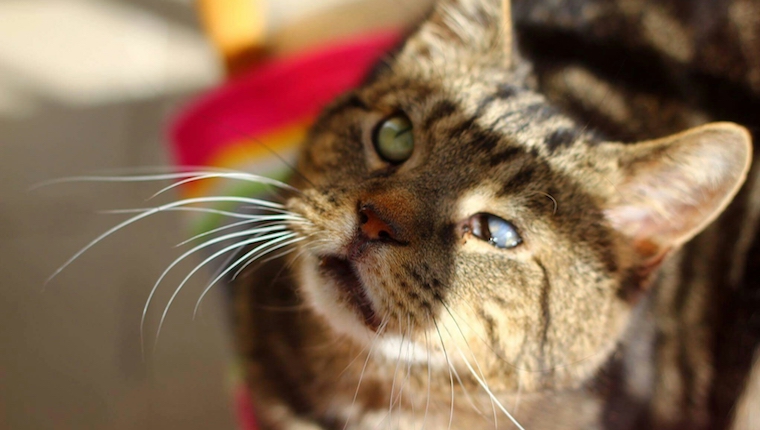Hello, fellow cat lovers and vigilant pet parents! Our feline friends have a way of stealing our hearts with their charming eyes, but what happens when those eyes start showing signs of trouble? Yes, today we’re tackling a serious concern – how to tell if your cat is going blind. As responsible cat owners, it’s essential to understand the signs and take action promptly. So, let’s embark on this sight-saving journey from the perspective of an animal expert, with guidance from veterinarians and government bodies, to ensure your kitty’s vision remains crystal clear.
Feline Sight: A Precious Gift
Before we dive into the signs of potential blindness, let’s take a moment to appreciate the gift of sight. A cat’s vision is a marvel of nature, allowing them to stalk their favorite toys, chase beams of light, and communicate with those captivating eyes.
Recognizing the Signs of Cat Blindness
Now, let’s explore how to identify if your cat is experiencing vision problems.
Expert Insights
To provide you with the most accurate information, let’s consult the experts – veterinarians. Dr. Catvision, a respected feline specialist, explains, “Cats can experience a range of vision issues, from partial loss of sight to complete blindness. It’s crucial for cat owners to be vigilant and recognize the signs early to seek proper care.”
Government and Veterinary Guidelines
Government bodies and veterinary associations stress the importance of regular veterinary check-ups for cats. Routine check-ups can help detect and address vision issues promptly.
Common Signs of Cat Blindness
Behavioral Changes
If your cat starts behaving differently, such as bumping into furniture, getting startled easily, or becoming more reclusive, it could be a sign of vision trouble.
Cloudy Eyes
Cloudiness or opacity in your cat’s eyes may indicate eye diseases or cataracts, affecting their vision.
Dilated Pupils
Prolonged dilation of the pupils, even in well-lit environments, can be a sign of impaired vision.
Misjudging Distances
Cats with vision problems might struggle to judge distances accurately, leading to clumsiness or hesitation when navigating.
Seeking Veterinary Care
Don’t Delay!
If you notice any of these signs in your cat, don’t delay in seeking veterinary care. Early diagnosis and treatment can significantly improve your cat’s quality of life.
Living with a Blind Cat
Providing Support
If your cat is diagnosed with blindness, don’t worry! Cats can adapt remarkably well. Provide a consistent environment, minimize changes in furniture placement, and use verbal cues to help your cat navigate.
Conclusion
In conclusion, recognizing the signs of potential blindness in your cat is crucial for their well-being. With the guidance of veterinarians and regular check-ups, you can catch vision issues early and ensure your furry friend continues to enjoy a happy and fulfilling life, even if their world becomes a bit darker.
Remember, being there for your blind cat with love and understanding can make all the difference. So, keep those feline eyes shining bright, and cherish the unique bond you share with your extraordinary cat!
- Best LeadsGorilla Alternatives for 2025 - April 19, 2025
- Best Coldlytics Alternatives for 2025 - April 19, 2025
- Best Brevo Alternatives for 2025 - April 18, 2025



